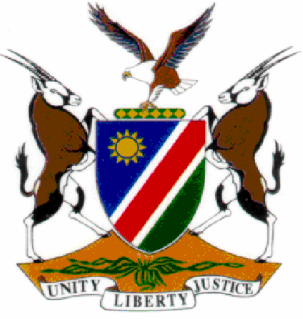
CASE NO.: CC 60/2007
IN THE HIGH COURT OF NAMIBIA
In the matter between:
VAINO IHUHWA APPLICANT
and
THE STATE RESPONDENT
CORAM: DAMASEB, JP
Heard on: 18 June 2012
Delivered on: 20 June 2012
APPLICATION FOR LEAVE TO APPEAL
DAMASEB, JP: [1] The applicant for leave to appeal was convicted by Manyarara, AJ on two counts:
Murder; and
Attempted murder
[2] He was sentenced to 25 years on the murder count and to 10 years on the attempted murder count, the latter to run concurrently with the sentence of 25 years in respect of the murder count. He seeks to appeal against sentence only in respect of count 1 and against conviction and sentence on count 2.
[3] He is out of time and therefore applies for condonation and the State, correctly in my view, does not oppose the application for condonation.
State’s concession
[4] Mrs Verhoef for the State concedes, again, correctly, that the learned trial judge’s questioning on the second count (attempted murder) of the accused in terms of s.112(1)(b) of the Criminal Procedure Act (CPA)1 was deficient and that the answers given by the accused did not exclude a potential defence such as self-defence. Mrs Verhoef agrees that there are reasonable prospects the Court of appeal may come to the conclusion that the trial judge erred in entering a guilty plea based on the answers of the accused instead of entering a not guilty plea in terms of s.113.
[5] Mrs Verhoef, if I understand her correctly, does not however concede that in respect of sentences, on both counts, the learned trial judge misdirected himself.
Main issue arising
[6] Manyarara AJ gave a reasoned judgment on sentence. It emerges from the learned judge’s summary of the surrounding circumstances that the applicant stabbed the deceased three times with a knife he had taken along with him to the deceased’s home to confront her and the complainant (in respect of the attempted murder count)in connection with their taunting him that his wife was pregnant by another man.
[7] Mr Ipumbu for the applicant has argued that the learned judge misdirected himself in over-emphasising the interests of society and down-played the personal circumstances of the accused. He argued that the common cause facts demonstrate that the murder was not pre-meditated and that the deceased swore at the accused before he stabbed her. Mr Ipumbu ignores the admitted fact that the applicant took the conscious decision to go to the deceased’s home with a knife. He stabbed her not once, or twice, but three times. As the learned judge said;
“Your anger erupted and you pushed her off her chair. When she rose you produced a kitchen knife you had brought with you. When she saw the knife she turned, but you stabbed her in the back and withdrew the knife stabbed her again and with drew the knife. Stab her yet again and withdrew the knife as she ran out of the house.”
[8] This Court has repeatedly lamented the fact that it has become fashionable for people to settle disputes and misunderstandings with violence. Violence is endemic in this society as the many reported and unreported judgements show. The Courts have the duty to stem that violence. If the trial judge considered that as deserving of greater consideration than the personal circumstances of the applicant, including the fact that he had paid compensation to the deceased’s family and contributed to the funeral costs, he was entitled to do so. The fact that I might have given greater weight to the latter factor is no warrant for the suggestion the trial judge was wrong. It was a matter in the court’s discretion. I find no misdirection and the sentence imposed does not, in my experience, induce a sense of shock. I am satisfied that another Court will not come to a different conclusion. Application for leave to appeal the sentence on count 1 is refused as there are no prospects of success on appeal.
Count 2
[9] In view of the State’s concessions that are properly made, leave to appeal is granted in respect of count 2. The view that the trial Court took of the seriousness of that offence is so inextricably linked to the facts it found proved to justify a finding of attempted murder. It must follow that if the conviction on count 2 is set aside and a new trial held, the trial court might find that the facts proved (or admitted) might not warrant a conviction for attempted murder but a lesser offence. It defies logic to suggest that in such a case the sentence imposed in respect of the attempted murder count should stand. Refusing leave to appeal against the sentence on count 2, while granting leave to appeal against the conviction, is not a path that leads to justice. I will therefore grant such leave.
[10] I make the following order:
Condonation for the late filing of leave to appeal the conviction and sentence on count 2 is granted;
Leave to appeal against sentence of 25 years on count 1 (murder) is refused;
Leave to appeal against conviction and sentence on count 2 (attempted murder) is granted.
__________________
DAMASEB, JP
ON BEHALF OF THE APPLICANT: MR T IPUMBU
OF: TITUS IPUMBU LEGAL PRACTITIONERS
ON BEHALF OF THE RESPONDENT: MRS A VERHOEF
INSTRUCTED BY: OFFICE OF THE PROSECUTOR-GENERAL
1 No. 51 of 1977